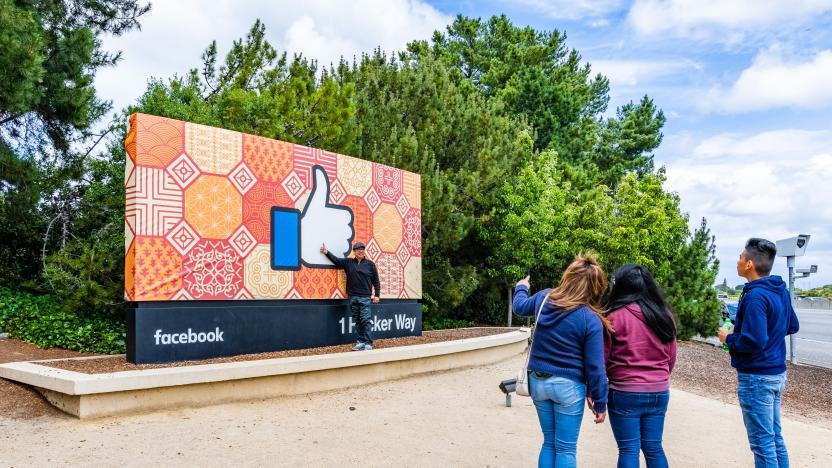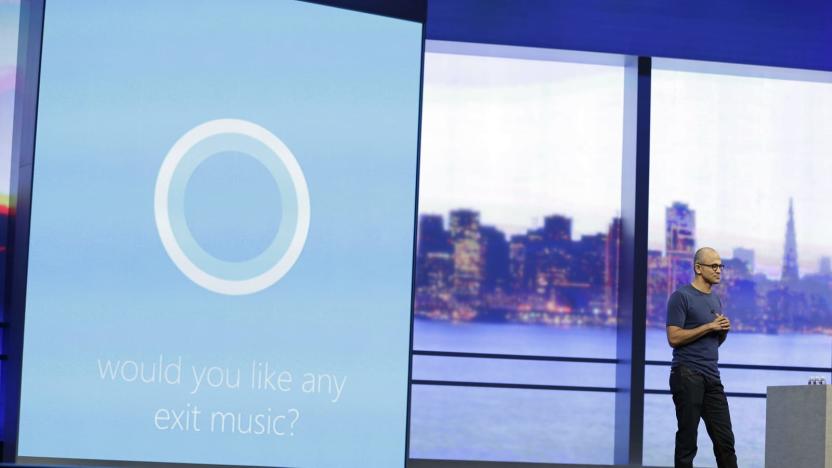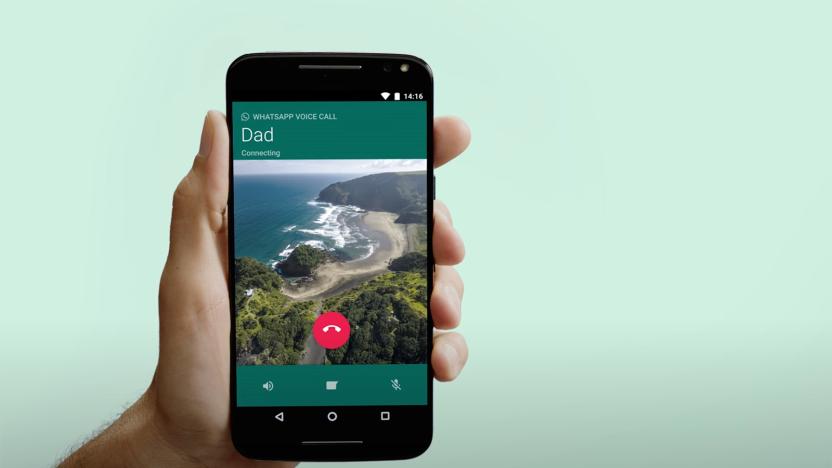voice calls
Latest

Facebook test brings voice and video calls back to its main app
Facebook has started testing a feature that gives users a way to place voice and video calls from within the main app itself, according to Bloomberg.

WhatsApp adds voice and video calls to its desktop app
One-on-one voice and video calling is now finally available on WhatsApp's desktop app for Window and Mac.

Microsoft says humans will still transcribe Cortana and Skype audio
Just like seemingly every other major tech company with a voice assistant or voice chat service, it emerged that Microsoft contractors were listening to Skype and Cortana recordings. Apple, Google and Facebook have temporarily halted similar efforts, and Amazon lets users opt out of having Alexa conversations reviewed by humans. But Microsoft will continue the practice for the time being despite possible privacy concerns.

WhatsApp voice calls now work on Android
WhatsApp's long-promised voice calling is now available on Android.

Orange begins first HD Voice calls between countries, decides clarity knows no borders
Orange was one of the vanguards of high-quality cellphone calls, having kicked off HD Voice with a Moldovian launch back in 2009. The premium chatter has always stopped at the border, however -- even two Orange customers couldn't see the improvement if they were in different countries. The carrier is bridging that gap with claims that it's the first to support improved voice on the international level: starting today, Moldovans and Romanians on Orange can give each other a ring and expect the extra-smooth calling they're used to from local conversations. We don't yet know if and when other countries will hop on the bandwagon. We've reached out, but it's possible that any upgraded links between other countries will come only from case-by-case negotiations. Those in Bucharest might want to track down any relatives in Chișinău for a quick chat in the meantime.

XDA brings voice calls to the 3G-enabled Samsung Galaxy Tab 10.1
While 3G Galaxy Note 10.1 owners use their Bluetooth-enabled S-Pen to make calls on their tablet, those with the equivalent Galaxy Tab are left out in the rain. Fortunately, the folks over at XDA Developers have leveled the playing field with four roms that bestow call-making powers on 3G variants of that particular slate. Three ICS and one Jelly Bean builds exist, with the only fault that sometimes you'll have to switch to 2G to get calls working properly. If you're really interested in stretching the definition of "phablet" beyond breaking point, head on down to the source links for more information.

Microsoft details deep Skype integration in Windows 8
Microsoft's been letting loose all of Windows Phone 8's secrets this morning, and the latest tidbit is all about VoIP calling. Turns out, the team in Redmond's really putting that money it spent on Skype to good use by integrating the video chatting/VoIP service deeply in its new mobile OS. From a user perspective, incoming Skype calls are treated like cellular communications, meaning that they appear as regular calls and are integrated with standard phone features -- like call waiting -- to maintain a seamless calling experience. The VoIP apps continue to run in the background, of course, thanks to WP8's new multitasking capabilities, and VoIP integration will be available to all developers. To check out the latest updates from Microsoft's Windows Phone event, visit our liveblog!

Gmail's free voice calls will be available through all of 2011, still only in the US
While the rest of the world has yet to taste the sweet elixir of free voice calls from its email supplier, US-based Gmailers are having their fun extended for a whole new year. Back in August, Google made it possible to dial up voice numbers in the US and Canada for free, and now, in the true holiday spirit of keeping users happy and advertising dollars flowing, Google promises to keep that service free through all of 2011. And if it decides to extend it into 2012, we could have free calls until the end of the world.

Orange begins HD Voice trial in Southern England, leaves out Buckingham Palace
Remember the good news that Orange brought to the UK on our alcohol-fueled New Year's Eve? We thought so. Anyway, it looks like said fruit company's still on course to "a new era for UK mobile communications" as it launches HD Voice trial in England today. Lucky participants across Bristol, Reading and Southampton will benefit from "crystal clear" voice calls, courtesy of the wider speech bandwidth -- 50–7000 Hz as opposed to the current 300–3400 Hz. Sadly, Orange isn't keen on dishing out deets about the special hardware, but our friends over at What Mobile had the chance to play with a modified Nokia X6 from yesterday's demo -- "It was like listening to AM radio and then switching over to listen to a CD." If all goes well, we'll meet the rest of the gang when HD Voice is rolled out "before the end of the summer." Press release after the break.

iPad won't handle GSM voice calls -- or will it?
Like the camera references, this could just be another case of vestigial SDK weirdness -- but for whatever reason, devs have noticed (and we've been able to reproduce) a "Touch to return to call" bar in the iPad emulator just like you'd expect to find on an iPhone during a traditional GSM call. It certainly seems like Steve would've bothered to mention during today's festivities if you could do something crazy like pair up a Bluetooth headset and go to town (and you'd need a voice plan on top of that $29.99 data anyway), so who knows: either Apple's just made every UI element as adaptable as possible regardless of whether it's applicable to a particular device, they're planning a higher-res iPhone down the road, or they're integrating the bar into some VoIP action. Or... you know, none of the above. [Thanks to everyone who sent this in]

3G GSM encryption cracked in less than two hours
Looks like all that GSM code-cracking is progressing faster than we thought. Soon after the discovery of the 64-bit A5/1 GSM encryption flaw last month, the geniuses at Israel's Weizmann Institute of Science went ahead and cracked the KASUMI system -- a 128-bit A5/3 algorithm implemented across 3G networks -- in less than two hours. If you must know, the method applied is dubbed 'related-key sandwich attack' where multiple values of known differentials are processed through the first seven rounds of KASUMI, then using resulting quartets that are identified sharing key differences, subkey materials can be obtained in round eight to build up the 128-bit key. Sure, it's hardly snooping-on-the-go at this speed, but worryingly this was only an 'unoptimized implementation... on a single PC.' At the same time, the paper condemns the presumably red-faced GSM Association for moving from MISTY -- a more computationally-expensive but much stronger predecessor algorithm -- to KASUMI. Guess we'll just have to stick with Skype.

GSM call encryption code cracked, published for the whole world to see
Did you know that the vast majority of calls carried out on the 3.5 billion GSM connections in the world today are protected by a 21-year old 64-bit encryption algorithm? You should now, given that the A5/1 privacy algorithm, devised in 1988, has been deciphered by German computer engineer Karsten Nohl and published as a torrent for fellow code cracking enthusiasts and less benevolent forces to exploit. Worryingly, Karsten and his crew of merry men obtained the binary codes by simple brute force -- they fed enough random strings of numbers in to effectively guess the password. The GSM Association -- which has had a 128-bit A5/3 key available since 2007, but found little takeup from operators -- has responded by having a whinge about Mr. Nohl's intentions and stating that operators could just modify the existing code to re-secure their networks. Right, only a modified 64-bit code is just as vulnerable to cracking as the one that just got cracked. It's important to note that simply having the code is not in itself enough to eavesdrop on a call, as the cracker would be faced with just a vast stream of digital communications -- but Karsten comes back to reassure us that intercepting software is already available in customizable open source varieties. So don't be like Tiger, keep your truly private conversations off the airwaves, at least for a while.






